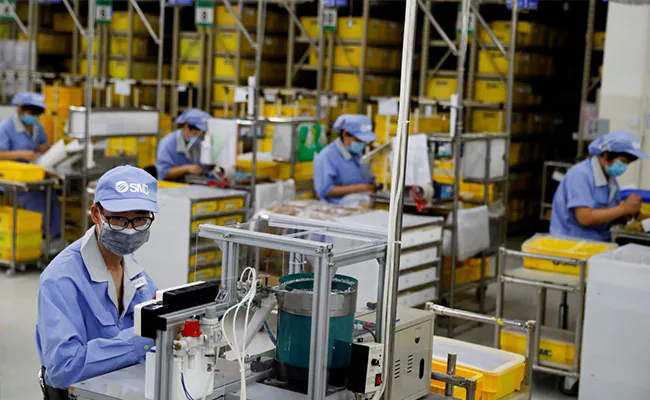
Asia’s factory activity slows as Ukraine crisis, inflation bite
TOKYO:
Most Asian factories saw activity slow in March, as slumping Chinese demand and rising raw material costs blamed on the Ukraine crisis added strains to firms already suffering from lingering supply chain disruptions.
While Japan benefited from easing COVID-19 infections, the spike in fuel and grain costs clouded the outlook for many Asian economies that are reliant on energy imports.
China’s factory activity slumped at the fastest pace in two years in March, a private sector purchasing managers’ index (PMI) showed on Friday, as the fallout from the Ukraine crisis and resurgence in domestic coronavirus cases hit external and domestic demand.
The outcome was in line with Thursday’s official data showing activity in Chinese manufacturing and services simultaneously contracted in March for the first time since the height of the country’s COVID-19 outbreak in 2020.
The slowdown in China bodes ill for Asia, which is host to big manufacturers dependent on consumption in the world’s second-largest economy, analysts say.
South Korea’s factory activity slowed in March with new export orders posting the sharpest reduction since July 2020, as companies took a hit from rise in input prices for goods ranging from oil, metals and semiconductors.
Factory activity also slowed in Taiwan and Vietnam, and contracted in Malaysia, as the region felt the pain from rising raw material prices, other PMIs released on Friday showed.
“The main channel for transmission is going to be from commodity prices, so energy, oil, gas, as well as foodstuff,” said Tai Hui, chief Asia market strategist at J.P. Morgan Asset Management.
“What’s going to happen is that the manufacturers, especially some of the more downstream ones, they’re going to face a bit more cost pressure,” he said.
By contrast, Japan saw manufacturing activity grew at a faster pace from the prior month in March, as domestic demand got a lift from the waning impact of the pandemic.
But Japan’s export orders slumped as external demand suffered from pandemic curbs in China and supply chain disruptions caused by Russia’s war in Ukraine.
South Korea’s PMI fell to 51.2 in March from 53.8 in February, standing above the 50-mark threshold that indicates expansion in activity, but the lowest in four months.
Japan’s final au Jibun Bank PMI rose to 54.1 in March, up from 52.7 in the previous month.

